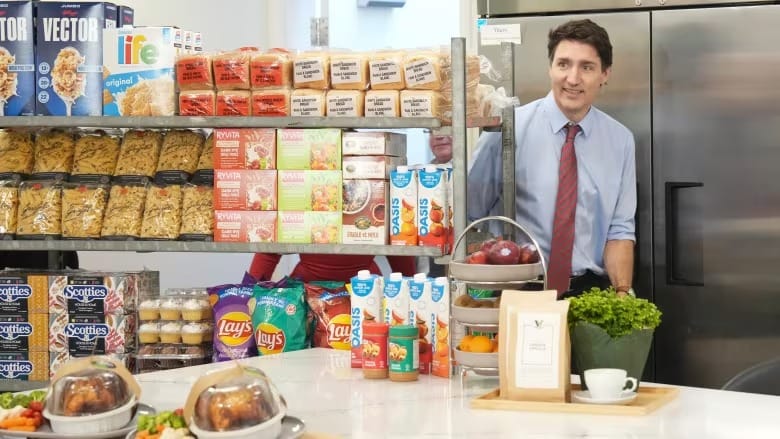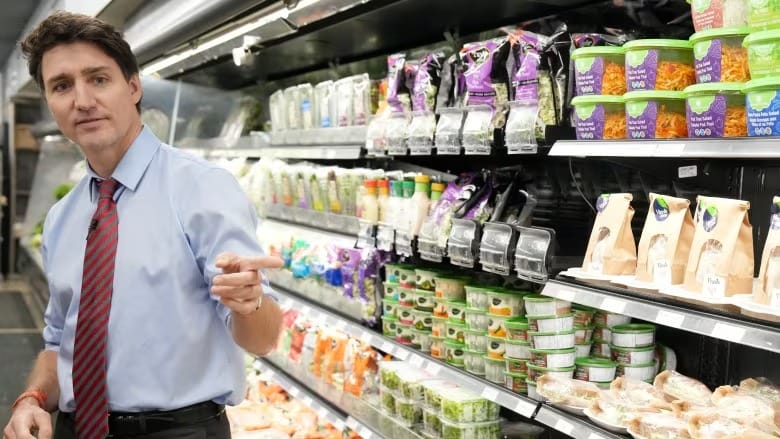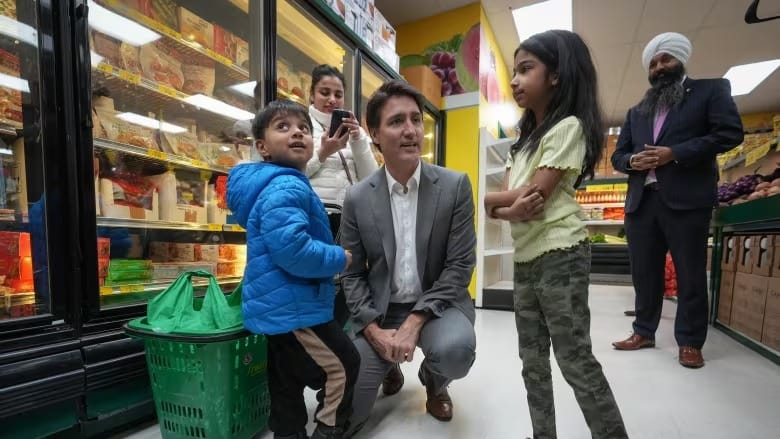Trudeau government to send $250 cheques to most people, slash GST on some goods
GST/HST holiday will last from Dec. 14 to February

Prime Minister Justin Trudeau has announced new initiatives to address affordability challenges, including a temporary two-month suspension of the GST on selected goods and services and direct payments to eligible Canadians.
The measures include $250 cheques, referred to as the "Working Canadians Rebate," which will be sent in early spring 2025 to 18.7 million people earning $150,000 or less in 2023. Additionally, a GST holiday will run from December 14, 2024, to February 15, 2025, covering the following items:
- Prepared foods like vegetable trays, pre-made meals, and sandwiches
- Restaurant meals, whether dine-in, takeout, or delivery
- Snacks such as chips, candy, and granola bars
- Alcoholic beverages with less than 7% alcohol by volume
- Children's clothing, footwear, car seats, and diapers
- Toys, including board games, dolls, and video game consoles
- Books, print newspapers, and puzzles
- Christmas trees
Trudeau emphasized the relief these measures aim to provide, stating, "Our government can't set prices at the checkout, but we can put more money in people’s pockets. People are squeezed, and we're there to help."
Government estimates suggest families spending $2,000 on eligible goods during the GST-free period could save about $100. In provinces where the GST is harmonized with provincial sales tax, like Ontario, the savings could reach $260.
However, these measures come at a significant cost: the GST holiday is projected to reduce federal revenue by $1.6 billion, while the direct payments will cost approximately $4.68 billion.
Broader Implications
The announcements follow economic challenges stemming from inflation and public dissatisfaction reflected in recent polls. While inflation has recently eased to meet the Bank of Canada's target, some experts express concerns that such measures could reignite inflationary pressures. Trudeau dismissed these fears, asserting, "These measures are not going to stimulate inflation," a sentiment echoed by Finance Minister Chrystia Freeland.
The federal debt has doubled over nine years to $1.4 trillion, with debt servicing costs projected at $54.1 billion for 2024-25. Trudeau defended the spending, highlighting Canada’s strong fiscal position.
Political Reactions
Opposition leader Pierre Poilievre criticized the measures as temporary fixes that do not address underlying affordability issues, pointing to rising housing costs and the federal carbon tax as persistent burdens. He argued for scrapping the GST on new home sales and the carbon tax altogether.
NDP Leader Jagmeet Singh voiced support for the measures while calling for broader reforms. The NDP has proposed permanently eliminating GST on essentials like groceries, diapers, and home heating, offset by higher taxes on corporate profits.
The legislative path for these measures may face challenges due to ongoing parliamentary gridlock over unrelated issues. Still, Singh expressed a willingness to expedite the process, stating, "We know middle-class families need a break. We're not going to oppose getting people some help."
This temporary GST exemption and direct rebate program aim to offer Canadians immediate relief during the holiday season, while broader debates about affordability and fiscal sustainability continue.





